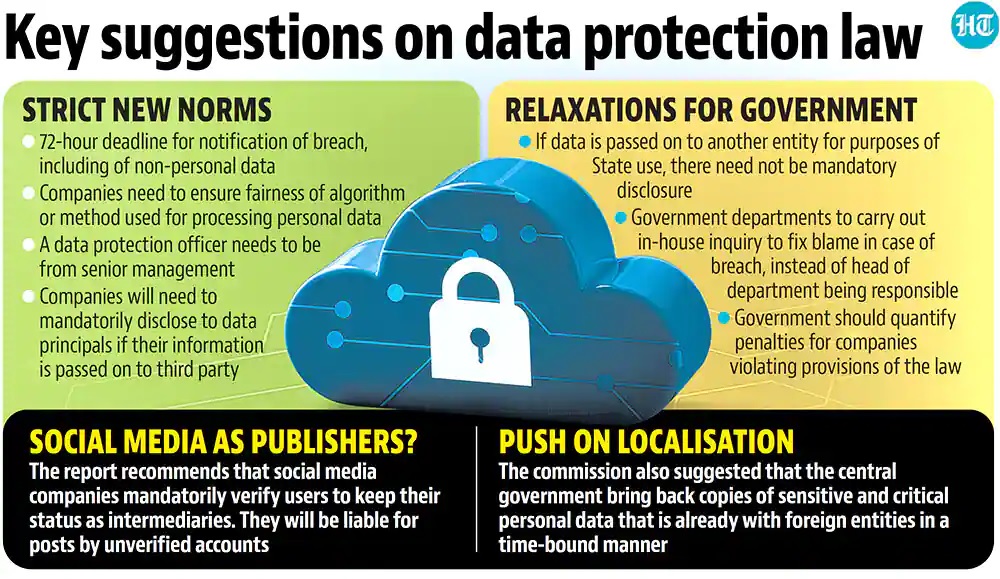7667766266
enquiry@shankarias.in
The Joint Parliamentary Committee (JPC) on Personal Data Protection Bill, 2019 has recently met and the agenda is to adopt the draft report that deals with privacy and security of the personal data of citizens.

References